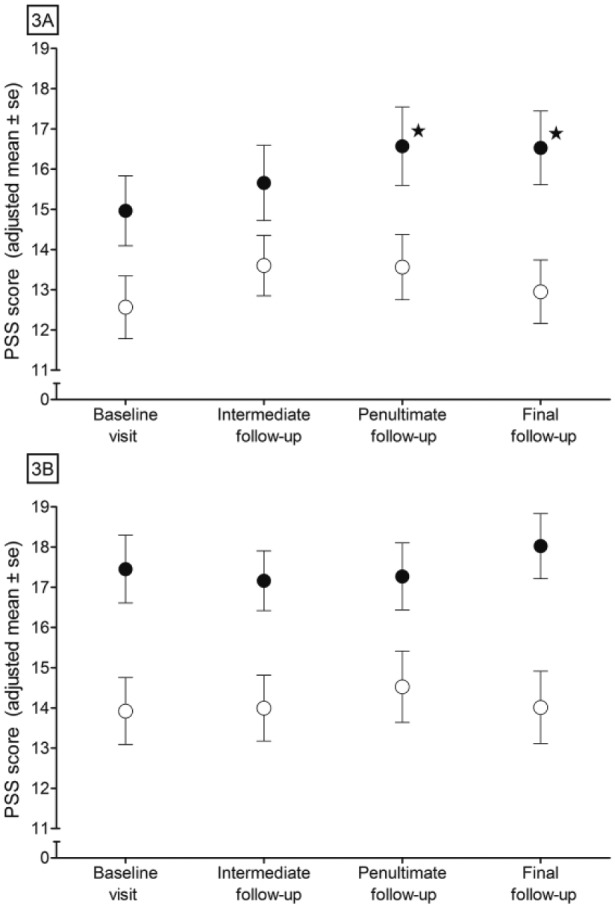Figure 3.

Psychological stress increases in participants with low-activity catechol O-methyltransferase (COMT) diplotypes who develop first-onset temporomandibular disorder (TMD) but not in other groups. From Slade et al. (2015). Adjusted mean Perceived Stress Scale (PSS) scores at 4 time points for incident cases of first-onset TMD (●) and TMD-free controls (○), stratified according to diplotypes of the gene encoding COMT: (A) incident cases (n = 96) and TMD-free controls (n = 90) with low-activity COMT diplotypes (HPS-APS, HPS-HPS, APS-APS, or HPS-LPS); (B) incident cases (n = 84) and TMD-free controls (n = 63) with high-activity COMT diplotypes (LPS-LPS or LPS-APS). The 4 periods were as follows: the day of the baseline visit, when all participants were TMD free; intermediate follow-up, the quarterly periods after enrollment but before the penultimate quarter; the penultimate follow-up, the quarterly period preceding the final quarter; and the final follow-up, the quarterly period that coincided with the clinical visit at which incident TMD was determined. Error bars represent ±1 standard error (se) of the adjusted mean. Data points denoted by a star (★) represent PSS scores that differ significantly (P < 0.05) from baseline for participants with the same case classification within the same stratum of COMT diplotype. low (LPS), average (APS), and high pain sensitive (HPS).
